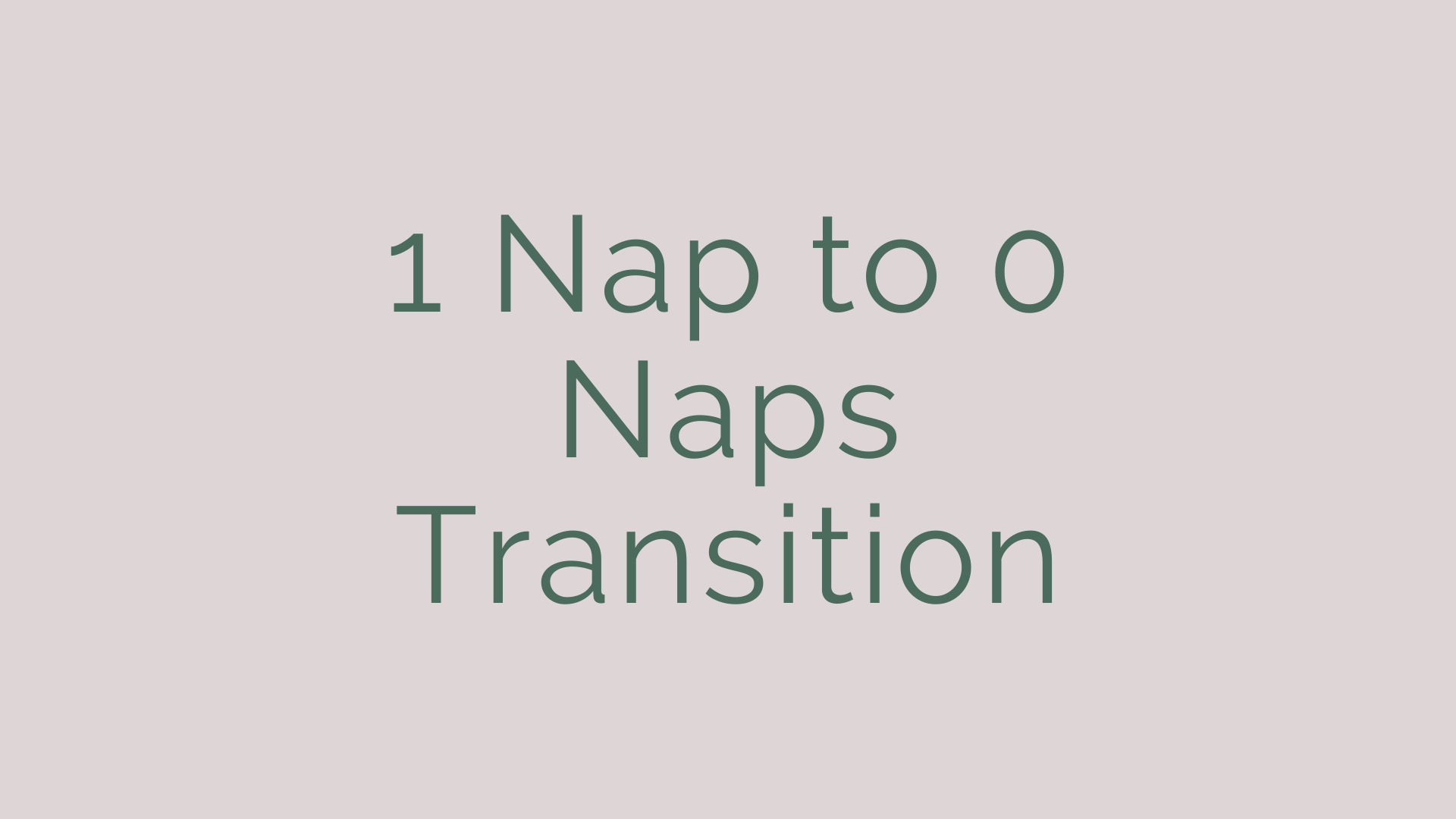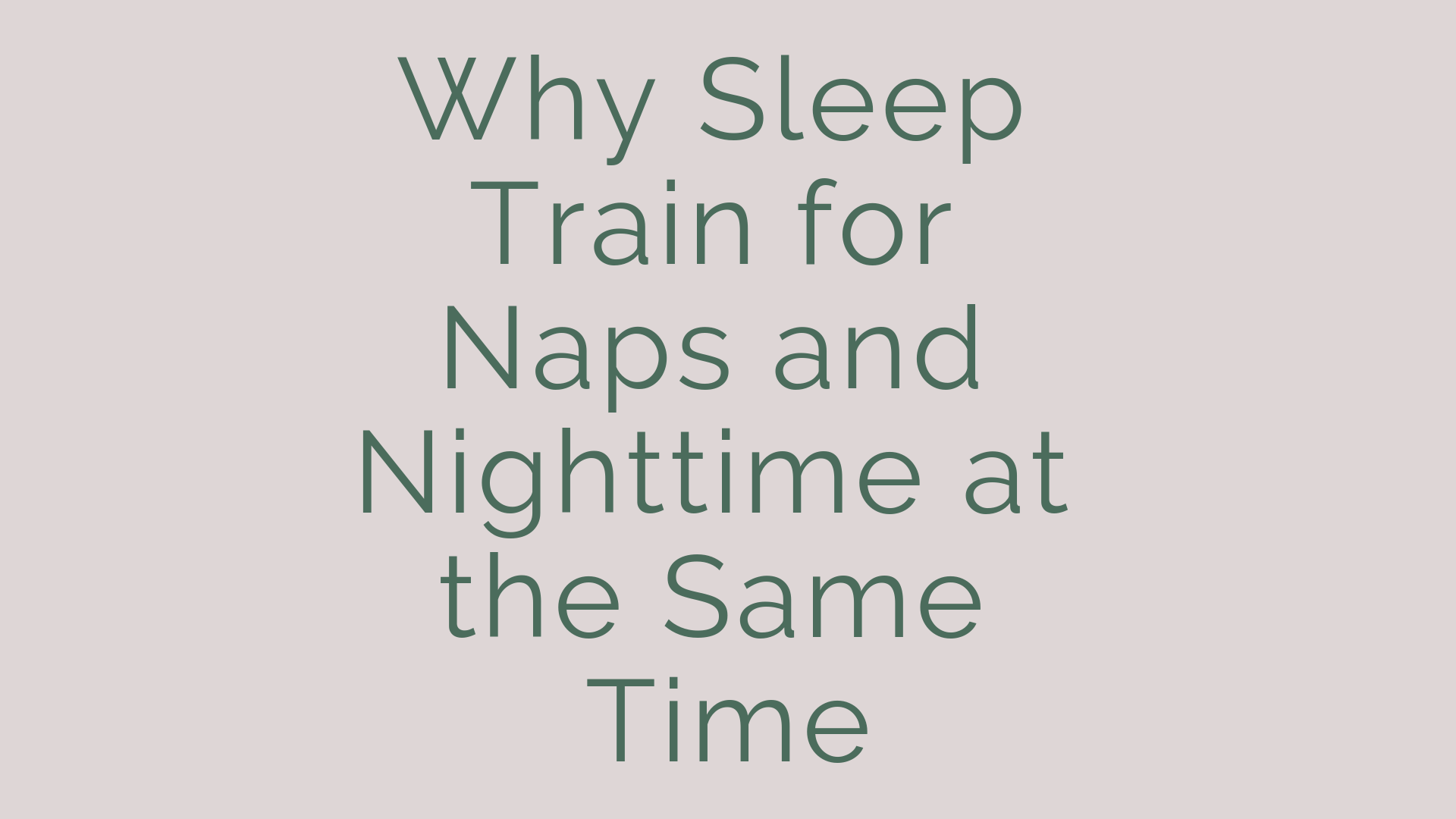As a sleep coach, I get a lot of short, general questions, which often require me to ask a number of follow up questions. This question, “Why won’t my baby nap?” is one of the ones I get most often. The truth is, there might be many reasons your baby isn’t napping. I think parents often mean, “Why won’t my baby nap well?” I would like to focus on the two main reasons infant and toddlers don’t nap. Or don’t nap well.

Photo Credit: Monika Rams
Can They Fall Asleep 100% On Their Own?
First, it’s possible/probable your baby isn’t napping well because they have not yet learned how to fall asleep unassisted. Unassisted means that…
1) a baby can go down totally awake
2) flat on their back
3) with a fully empty and flat crib (meaning no swaddle, no pacifier, and no crib positioner such as a Doc a Tot),
4) and fall asleep without your assistance, or presence for all naps and bedtime sleep.
If your child requires any form of assistance whatsoever, they are not able to fall asleep unassisted. (Examples: nursing, rocking, feeding, bouncing, swaddling, riding in a car/stroller, swing.) Younger infants (below 6 months of age), can often be assisted to sleep. And then remain asleep. However, older babies and toddlers (and sometimes even very young babies), struggle to nap well when assisted to sleep. This is because they are often assisted to sleep, and then wake to find themselves alone or away from their sleep prop.
As they become more aware, they may become more worried (to the extent an infant can worry) that they won’t be able to get back to sleep without their prop. So they resist falling asleep. Or wake up as soon as they are put down. It can take up to 15-20 minutes for the brain to go into the deepest levels of sleep. Most infants below the age of 7 months take naps that are 30-45 minutes in length. This means they would require their sleep prop for almost the entire duration of their nap!
Dealing With Short Naps
Are you are able to assist your child to sleep quickly, easily, and leave them on their own? But find they wake up shortly thereafter anyway? It’s likely that your baby is under 7 months of age, and simply taking short naps. As I discuss in my blog post on the four month sleep regression, short naps are very typical for young babies. Giving your child the opportunity to learn to fall asleep unassisted is still beneficial in this regard. Why?
First, it increases the likelihood that if your child wakes from a nap after a brief period of time, they may be able to put themselves back to sleep. Especially if given a few moments to attempt to do so on their own. Second, babies who know how to fall asleep independently are usually able to put themselves back to sleep as they wake throughout the night. It is normal for humans to wake slightly as they transition from one sleep cycle to the next. Children who are independent sleepers are more likely to be able to fall back to sleep independently. Without needing a sleep prop.
Telling a parent they need to let their child learn how to fall asleep wholly on their own is a bit of an “easier said than done” situation. That’s why I’ve created an affordable Online Training Series. Parents can learn the straightforward steps to getting their child (aged 16 weeks of older) falling asleep on their own, sleeping through the night, and taking healthy naps.
Sleep Training Can Help
There may be many sleep-related issues that might cause a child to nap poorly. Like a child’s sleep environment, or the number of naps they’re taking. However, if your child isn’t able to fall asleep on their own for naps and bedtime, you may find yourself dealing with poor naps and disrupted nighttime sleep for an indefinite period of time. Even if you take into account their schedule, bedroom environment, or even how much they’re eating,
Sleep training benefits the entire family, and children of all temperaments and personality types can be successful with a consistent and guided sleep training approach. Please know there is help out there! It *really* is true that healthy sleep for the whole family may only be a few short days or weeks away.






Hi Natalie,
I sleep trained my 10.5 month old at 4 months using Ferber. Up until last week, he was going in the crib just fine for naps, putting himself to sleep, napping 2x/day for 1+ hr. Starting on the day daylights saving time ended, he started to refuse his second nap. He’s yawning, rubbing his eyes, but will rock back and forth on hands and knees crying. Also started to pull up/cruise this week. I’ve been taking him out after an hour, but have to run errands etc and he almost always falls asleep in the stroller or car as a result. Is this a sleep association? How do I get back to our schedule?
Thanks!
Hi Ariel!!
i’d check out these posts:
https://www.babysleeptrainer.com/how-to-protect-sleep-during-milestones-standing-sitting-walking/
https://www.babysleeptrainer.com/10-12-month-sleep-regression-and-why-its-not-time-to-transition-to-1-nap/
Hi Natalie,
We have a 4.5 month old who sleeps totally independently. Night sleep is just fine with one wake up to eat and goes back to sleep right after.
For naps, he falls asleep totally independently but wakes up after 30 minutes almost every time. We have tried everything from adjusting his awake time to ensuring he is well fed and very active while awake. However, he went from being able to take two good long naps almost every day to taking only 30 minute naps.
Is it appropriate to do just nap=training with him?
Thanks,
Salome
Hi Natalie, I’ve read your book and a many of the posts on this site. Thanks for your tips so far! Our family is on day 3 of the plan right now with our 2 year old.
For almost the entire nap time, they will protest(yell/cry) until they fall asleep while STANDING. Once they lose balance they’ll start crying and yelling all over again. They never cry for more than 10 minutes straight, and won’t sit down or lie down.
Originally I gave them 1 hour to fall asleep, 45 minutes of awake time, followed by another “nap attempt” — a total of 3 times. They ended up not napping at all for the first 2 days.
I’m a little unsure on a few things;
– Is this a “normal” behavior?
– Is what I mentioned above *** the correct application of your method?
– When do I end the “nap attempt”? / should I wait longer than an hour?